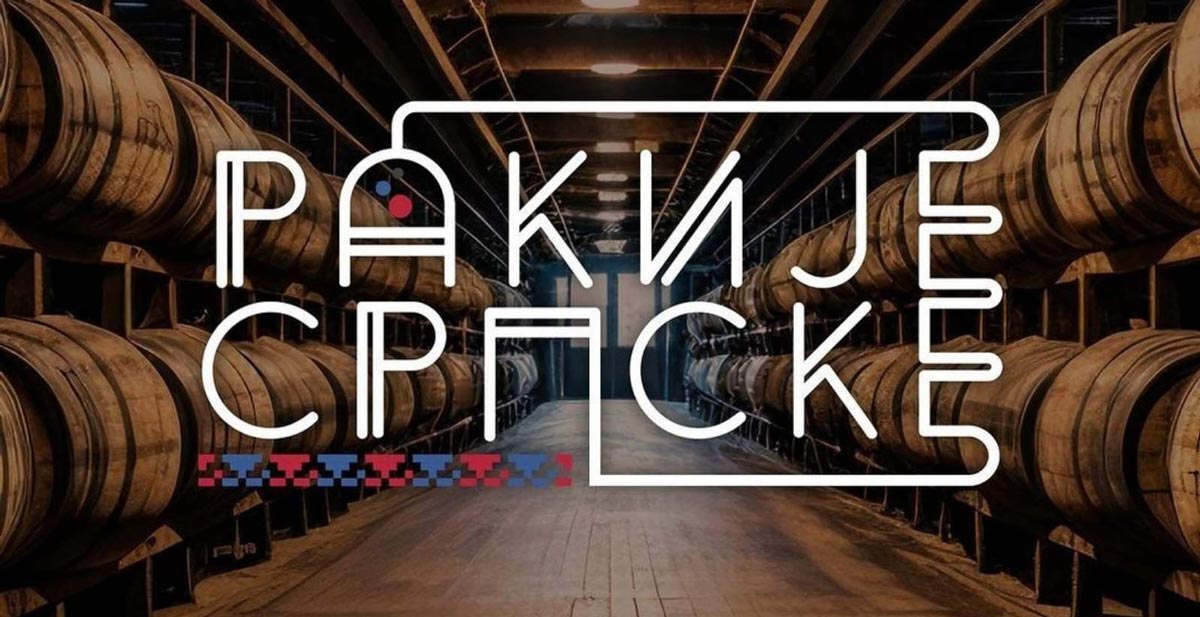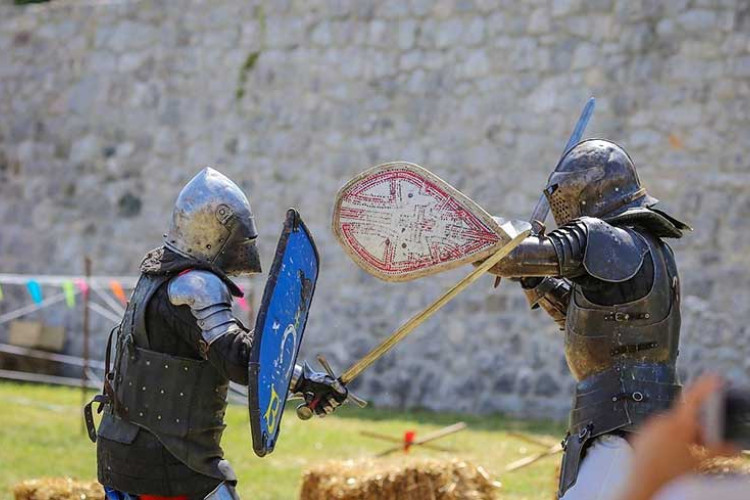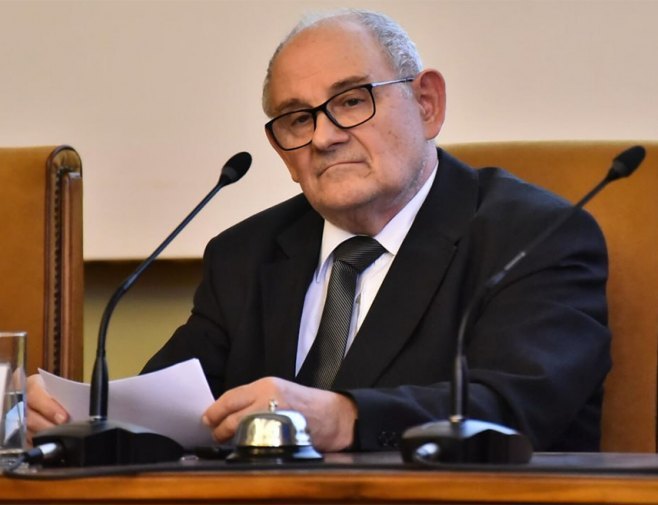Despite the large crowd, everything went incredibly smoothly. This speaks lot about the people who attended. Everyone was incredibly polite and well-behaved, even though rakija was being served. It can freely be said that he fell even more in love with rakija and Banja Luka, said Nijs.
The Director of the World Spirits Competition in Brussels – Spirits Selection by Concours Mondial de Bruxelles, Ulrik Nijs, stated in an interview with Srna that he was greatly honored to attend the First National Festival of Domestic Rakija “Rakije Srpske” last month in Laktaši, which left a strong impression on him.
Nijs emphasized that the event was much more than just a rakija festival; it resembled a “gourmet” festival that highlighted the rich heritage of Republika Srpska and Bosnia and Herzegovina.
“The wealth of displayed products was impressive and definitely delicious! Combining local rakija and delicacies was an excellent way to strengthen the identity of the festival and broaden its appeal to a wider audience. Regarding rakija, I was particularly impressed with the quality and variety of products,” said Nijs.
A WELL-ORGANIZED FESTIVAL
Nijs praised the festival’s logistics, noting it was very well-organized. Food and free water were easily accessible to visitors, and the range of exhibited products was impressive.
As a frequent attendee of spirits festivals worldwide, Nijs pointed out potential areas for improvement, such as lighting, since darkness fell quickly, making it harder to evaluate the visual characteristics of the drinks. He suggested that better lighting would help.

He also noted that the booths could have been more clearly separated to improve flow and brand recognition. As a former bartender with a reputation in the field, Nijs said he always pays attention to how spirits are incorporated into cocktails. He was curious about how local bartenders mix rakija, as he believes rakija has great potential in this domain and would like to see it explored.
FALLING IN LOVE WITH RAKIJA AND BANJA LUKA EVEN MORE
“A very important and praiseworthy aspect of this festival was the guests. Spirits festivals are always delicate to balance: free alcohol and large crowds usually aren’t a good combination! I was impressed that despite the large crowd, everything went incredibly smoothly. This says a lot about the people who attended. Everyone was exceptionally polite and well-behaved, even with rakija being served,” said Nijs.
He added that it can freely be said he fell even more in love with rakija and Banja Luka.
THE FUTURE OF RAKIJA: OBSTACLES TO OVERCOME
Nijs expressed confidence in rakija’s future, noting that this festival solidified his opinion. However, he acknowledged that there are obstacles to overcome.
The first, he explained, is education and visibility. Outside its geographical borders, rakija is largely unknown, and slivovitz is often misunderstood.
He highlighted that the fruit spirits market has been dominated by France and Germany, which have successfully claimed this category. For example, French brandy Calvados enjoys greater recognition among consumers and bartenders than slivovitz, which he finds illogical.
“This shows how, by working together with government and supportive foundations, a category can grow beyond its borders. ‘Together we are stronger’ applies to spirits as well. Another example would be Irish whiskey. This category has struggled to grow beyond brands like Jameson and Bushmills but is slowly gaining the recognition it deserves by working together cohesively,” said Nijs.
COMPETITIVE ADVANTAGES AND OPPORTUNITIES
According to Nijs, the price-to-quality balance works in favor of rakija. “The Balkans are blessed with an abundance of excellent raw materials and can produce great fruit distillates at very competitive prices. There is an opportunity to capitalize on this, but as I mentioned, potential consumers need to be aware of the category and its quality. It’s clear that we are in the early stages of rakija’s expansion, but if a unified approach is adopted, its reputation can only grow,” he said.
Nijs noted that rakija has the potential to avoid the pitfalls of other spirits, such as being relegated to an “after-dinner” drink. French Calvados and other fruit spirits (eaux de vie in French) struggle to shake this positioning.
“If rakija can establish itself in more contemporary consumption patterns—mixology, for example—it could perform very well. It has the craftsmanship, heritage, and quality to succeed,” Nijs pointed out.
WORLD SPIRITS COMPETITION
Nijs described the World Spirits Competition as “the United Nations of spirits” and much more than just a competition. It is a platform for education, support, and networking.
He stated that no other competition in the world unites so many experts from different nationalities to evaluate such a wide range of spirits. Last year, nearly 2,800 samples from over 60 countries were judged by 150 judges, with only 30% of the samples awarded medals, ensuring the medals’ high value.
“These medals are not only a sign of quality but also provide award-winning spirits with the opportunity to be showcased at various fairs across Europe under the umbrella of the World Spirits Competition, along with other added services,” said Nijs.
THE “KULTURA RAKIJA” FOUNDATION IN BANJA LUKA
Nijs believes that the existence of the “Kultura rakija” Foundation, dedicated to preserving the centuries-old tradition and artistry of making and enjoying rakija in Republika Srpska, is crucial for the development of this spirit and represents a significant step in the right direction.
“The ability to set quality standards and ensure their adherence is essential for the development of any spirits category. French Armagnac, Cognac, and so on, have established production and operational guidelines for their spirits. Alcoholic beverages are much more than liquid in a glass; they are an extension of a country’s culture, an expression of its hospitality, and its unofficial ambassador. That’s why it is crucial to ensure they reflect the right image,” Nijs said.
He recalled that it took decades for tequila to shed the “salt and lime” ritual, which still lingers to some extent. “I know many tequila producers who cringe at the mention of salt and lime. These are decades lost in righting wrongs instead of focusing on growth. Working with a foundation like yours will avoid such mistakes and— as previously mentioned—ensure that all rakija producers are on the right path,” concluded Nijs in his interview with Srna.









